Various components of your body, including your eyes, brain, inner ear, and nerves in your feet and spine, collaborate to maintain your balance. When one part of this system malfunctions, it can result in a feeling of dizziness. This dizziness may serve as a potential indicator of a serious issue and pose a risk of falling. Your healthcare provider will conduct a thorough assessment of your symptoms and overall health to determine the root cause and recommend the appropriate treatment.
If you experience dizziness and also faint, fall, have difficulty walking, or exhibit any of the following symptoms, it's crucial to seek immediate medical attention:
- Chest pain
- Severe or unusual headache
- Head injury
- High fever
- Irregular heart rate
- Seizures
- Shortness of breath
- Stiff neck
- Sudden changes in speech, vision, or hearing
- Vomiting
- Weakness or numbness in your face
- Weakness in your leg or arm
Do you feel like you're spinning or that the room is moving around you? This is a common symptom of a specific type of dizziness known as vertigo. It extends beyond a mere sense of imbalance and typically intensifies with head movement. Vertigo often indicates an issue in the inner ear or the part of the brainstem responsible for balance. The most common form is benign paroxysmal positional vertigo (BPPV).
Within your inner ear, a complex system of canals, filled with fluid, informs your brain about head movement. In the case of BPPV, small calcium particles within the inner ear can become dislodged and end up in places where they shouldn't be. This disrupts the system's normal function and sends erroneous signals to your brain.
This condition is often associated with the natural aging process, but it can also be triggered by head injuries. You may experience brief episodes of dizziness when you tilt or turn your head, especially when changing position in bed or getting up. BPPV is typically not a serious issue and often resolves on its own. For those seeking faster recovery, specific head exercises called the Epley maneuver can be used to reposition the dislodged calcium particles. Most individuals experience improvement after one to three treatments.
Various other factors, both within and outside the brain, can also cause vertigo. These factors may include Meniere's disease, labyrinthitis, an acoustic neuroma tumor, or side effects from certain antibiotics. In the brain, it might be associated with a vestibular migraine, multiple sclerosis, structural brain abnormalities, or cerebellar stroke due to inadequate blood flow or hemorrhage.
Inflammation (infection) of the nerves within your ears can also lead to vertigo. This may manifest as vestibular neuritis, which involves inflammation of the vestibular nerve, or labyrinthitis, which affects both the vestibular and cochlear nerves. Infections, often of viral origin, are typically responsible for these conditions. However, bacteria from middle ear infections or meningitis can also enter your inner ear.
Dizziness in this context tends to arise suddenly. You might experience ringing in your ears, hearing difficulties, nausea, fever, and ear pain. Symptoms can persist for several weeks. If the infection is viral and cannot be treated with antibiotics, medication can help alleviate symptoms as the infection runs its course.
Meniere's disease is characterized by intense episodes of vertigo that can last for hours. Other symptoms may include a feeling of fullness or pressure in one ear, ringing in the ears, hearing loss, and nausea. Following an attack, you may feel fatigued. Individuals with Meniere's disease have an excess of fluid in their inner ear. The exact cause remains unknown, and there is no cure. Typically, it's managed through dietary modifications (a low-sodium diet) and medication to control dizziness.
Many individuals do not consume sufficient fluids such as water to compensate for daily fluid loss through sweating, breathing, and urination. Dehydration can be especially problematic for older individuals and those with diabetes. Severe dehydration can result in lowered blood pressure, reduced oxygen supply to the brain, and dizziness. Additional symptoms of dehydration include thirst, fatigue, and dark urine. To combat dehydration, it's essential to drink an adequate amount of water or diluted fruit juice while limiting the consumption of coffee, tea, and soda.
Dizziness may indicate a problem with circulatory blood flow in your body. Your brain requires a consistent supply of oxygen-rich blood to function correctly. A disruption in this supply can lead to light-headedness, or even fainting. Causes of inadequate blood flow to the brain include blood clots, clogged arteries, heart failure, and irregular heartbeats. Older individuals are particularly susceptible to a sudden drop in blood pressure when standing up quickly.
People with diabetes need to monitor their blood sugar levels regularly. If blood sugar levels drop too low, dizziness can occur. This may also lead to sensations of hunger, shakiness, sweating, and confusion. While low blood sugar can occasionally affect individuals without diabetes, this is rare. A quick remedy for low blood sugar is to consume something containing sugar, such as juice or a hard candy.
Numerous medications list dizziness as a potential side effect. If you are taking medications such as antibiotics (including gentamicin and streptomycin), antidepressants, anti-seizure drugs, blood pressure medications, or sedatives, it's advisable to consult your healthcare provider regarding potential side effects.
Dizziness can serve as a warning sign for various other medical conditions, including migraines (even without pain), stress or anxiety, nervous system disorders like peripheral neuropathy and multiple sclerosis, or the presence of a brain or inner ear tumor. If your dizziness persists or impairs your daily functioning, it's advisable to consult with your healthcare provider to identify the underlying cause and receive appropriate treatment.
- Click here for "Dizziness" (Mayo Clinic)
- Click here for "Dizziness" (Health Line)
- Click here for "VEDA: Dizziness"

